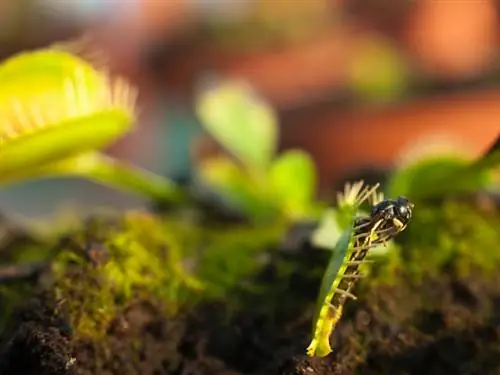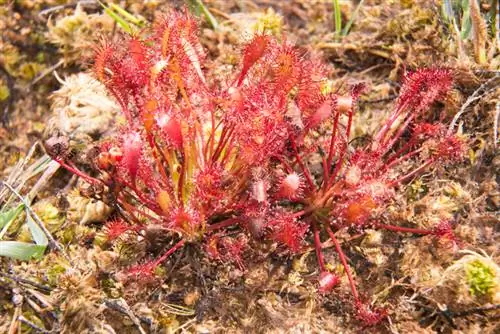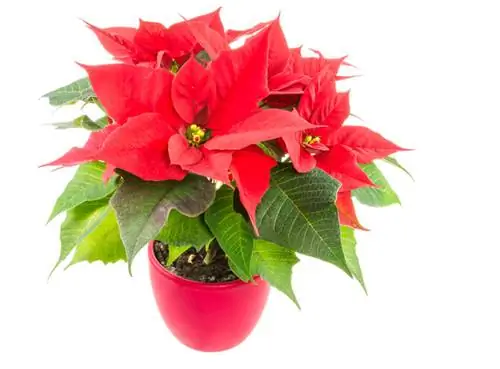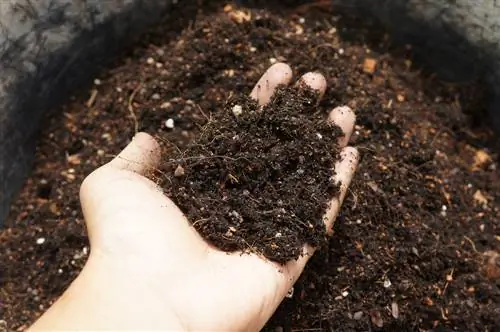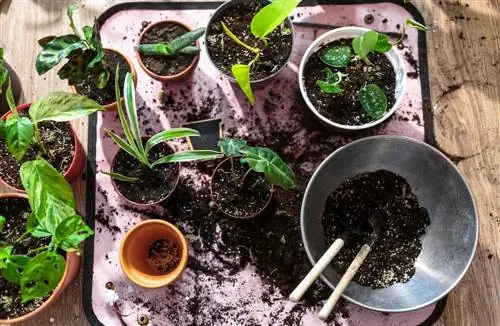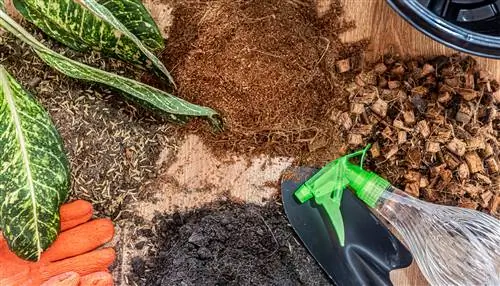- Author admin leonars@hobbygardeners.com.
- Public 2023-12-16 16:46.
- Last modified 2025-01-23 11:20.
Carnivorous plants differ from conventional houseplants in many ways. This mainly affects the substrate. Never plant carnivores in regular soil from the garden or hardware store. This is what plant substrate for carnivorous plants should be like.
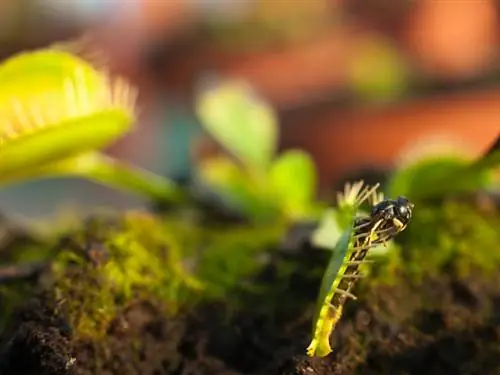
Which soil is suitable for carnivorous plants?
Soil for carnivorous plants should be low in nutrients, lime-free and water-retaining. Suitable substrates are unfertilized white peat, peat moss, quartz sand, gravel, expanded clay, coconut fibers and Styrofoam balls. Use rainwater for watering to ensure vital limescale avoidance.
Where can you get substrate for carnivorous plants?
You can get so-called carnivore soil in many hardware stores and also in garden centers. It is sometimes also offered under the name soil for carnivorous plants.
If the store doesn't have substrate for carnivores in stock, orchid soil can also be used if necessary. However, if possible, this should not be fertilized. Mix in some quartz sand to make the soil looser.
Make your own soil for carnivorous plants
If you spend a little more time breeding carnivores, you will quickly move on to mixing the substrate yourself. Some materials are suitable for this:
- Peat (white peat)
- peat moss
- Quartz sand
- gravel
- expanded clay
- Coconut fibers
- Styrofoam balls
It is important that the substrate stores a lot of water, is nice and loose and offers the plants enough support.
The right mix
The basis for carnivore soil is always peat, preferably white peat. Peat is low in nutrients, contains no lime and can store water well. At least half of the substrate should consist of peat.
Peat breaks down over the months. That's why it makes sense to mix in quartz sand, small pebbles and some expanded clay. These materials keep the soil nice and loose.
To avoid the risk of the roots drying out, it is advisable to also use some expanded clay. It stores water particularly well.
Only water with rainwater
The irrigation water for carnivorous plants is even more important than the substrate. They do not tolerate any lime, neither in the soil nor in the water.
So always water carnivores with rainwater. If there is no rainwater at all, you can use still mineral water or distilled water.
Tap water is much too hard almost everywhere and is therefore not suitable as irrigation water, even if it is stale or boiled.
Tip
If you prepare the soil for your carnivores yourself, make sure that you use unfertilized white peat. Hardware stores often only offer pre-fertilized varieties. These are not suitable for breeding carnivorous plants.

